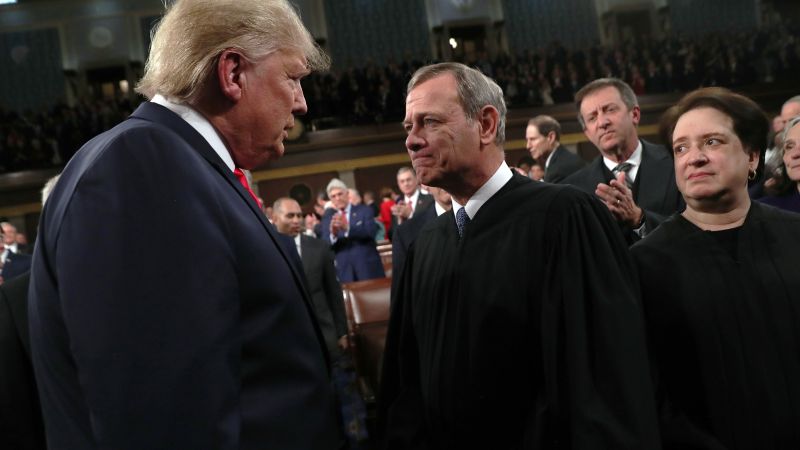In a groundbreaking decision, Chief Justice John Roberts, along with five of his fellow Republican-appointed justices, declared a stunning level of immunity for former President Donald Trump in the case of Trump v. United States. Roberts, known for his judicial restraint, abandoned his usual approach and expansively interpreted constitutional protection for any president who might face indictment for actions taken while in office. Joined by three justices appointed by Trump himself, Roberts emphasized the gravity of presidential responsibilities, arguing that a president must be afforded maximum ability to deal fearlessly and impartially with their duties. This decision all but ensures that Trump will evade a trial for his actions in attempting to overturn the 2020 election before the 2024 presidential contest.
The dissenting justices, including Justice Sonia Sotomayor, condemned the majority’s decision for reshaping the presidency and granting Trump immunity that goes beyond what he requested. The justices in the minority argued that the court’s ruling defied constitutional history and past cases, such as US v. Nixon and Clinton v. Jones, where the Supreme Court ruled unanimously against sitting presidents. The deep political polarization in today’s bench reflects the broader divide in the country, with Roberts’ decision marking a significant departure from his past efforts to broker compromises in politically charged disputes.
The case will now return to US District Court Judge Tanya Chutkan to determine which of Trump’s activities surrounding the election may be subject to criminal liability. The Justice Department attorney representing the case, Michael Dreeben, will work with the special counsel to determine how to proceed following the Supreme Court’s decision. Despite the outcome, Roberts defended the court’s handling of the case, insisting that the broad presidential immunity protects the institution of the presidency, not individual presidents. As the case heads back to the lower court, the implications of this decision are likely to define Roberts’ legacy as Chief Justice as he approaches his 20th session in the center chair next October.











